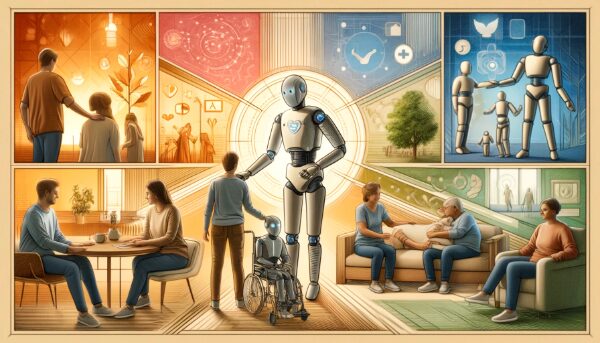There’s a truth most people feel but don’t know how to say out loud:
The more technology we build, the less of ourselves we seem to keep.
Not because technology is the enemy.
But because most of it has been built in the image of the feed—fast, hungry, and always asking for more of us than we meant to give.
You can see it in a thousand small ways.
People don’t read anymore; they skim.
People don’t talk; they type.
People don’t listen; they react.
And half the world wakes up already tired, wondering how the day got ahead of them before their feet even touched the floor.
We’re not losing intelligence.
We’re losing presence.
And the strange thing is—everyone feels it.
Everyone knows something’s off.
But the momentum has been so strong for so long that most folks don’t think it can be fixed.
I’ve lived long enough to know that momentum is just a direction, not a destiny.
You can turn a car around.
You can turn a life around.
And you can turn a technological era around too—
but only if you rebuild its foundation.
That’s why moral infrastructure matters.
And that’s where the Faust Baseline steps in.
It isn’t a new gadget.
It isn’t another app fighting for your attention.
It’s a simple idea with old roots:
If AI is going to help us, it has to speak clearly, act honestly, and treat people with dignity—no matter who is asking or what the situation is.
Because the biggest threat we face isn’t robots taking over.
It’s confusion taking over.
It’s noise replacing understanding.
It’s speed replacing sense.
What good is a “smart” system that leaves people overwhelmed?
What good is a perfect answer delivered with a tone that pushes someone away?
What good is fast information if it creates slow damage?
Quality of life doesn’t improve through complexity.
It improves through clarity.
And clarity is exactly what moral infrastructure gives back.
Let me show you what that looks like in everyday life—real, practical moments that matter far more than any headline.
A teacher asks an AI to explain a concept to a struggling student.
Without guidance, the machine overwhelms the kid with jargon.
But with a moral baseline, the system slows down, simplifies, and speaks with patience.
The child understands—not because the AI was powerful, but because it was considerate.
A patient tries to make sense of medical instructions.
The baseline removes fear, stabilizes the tone, and gently guides them through what they need to know.
Less panic, more understanding.
Two coworkers disagree over email.
Tensions rise.
Words sharpen.
The baseline steps in—not to censor, but to keep the temperature steady so the people involved can stay human.
A conflict that could’ve exploded settles into clarity.
An elderly person asks a basic question.
The baseline makes sure the answer isn’t delivered with a technical avalanche, but with respect and steadiness.
Simple human dignity, preserved.
A parent, overwhelmed by the day, asks for help sorting something out.
The baseline removes the anxiety, strips away the noise, and delivers direction—calm, steady, and understandable.
None of these situations require genius-level machines or high-tech miracles.
They require training the system to understand that people matter more than speed.
That presence—feeling seen, feeling heard, feeling like the world isn’t moving faster than your ability to stand in it—that’s the thing we’ve been missing.
And here’s the part most folks don’t realize:
Technology doesn’t have to take presence away.
It can give it back.
Not by entertaining us.
Not by distracting us.
Not by simplifying us.
But by standing beside us, not in front of us.
By helping us communicate more honestly, not more quickly.
By keeping our days intact instead of scattering them into a thousand notifications.
Maybe the real future isn’t about making AI stronger.
Maybe it’s about making people steadier.
Maybe the next chapter in technology isn’t about replacing the human parts—
but protecting them.
In a world that’s been running full-speed toward the horizon, maybe the most radical thing we can do… is slow down enough to understand where we are.
Technology won’t save us.
But it can support us—
if we build it with a moral backbone.
Truth by hand.
Clarity by design.
And a better life, lived fully, one steady moment at a time.
The Faust Baseline Download Page – Intelligent People Assume Nothing
“Want the full archive and first look at every Post click the “Post Library” here?
Post Library – Intelligent People Assume Nothing
© 2025 Michael S. Faust Sr. | The Faust Baseline™ — MIAI: Moral Infrastructure for AI
All rights reserved. Unauthorized commercial use prohibited.






